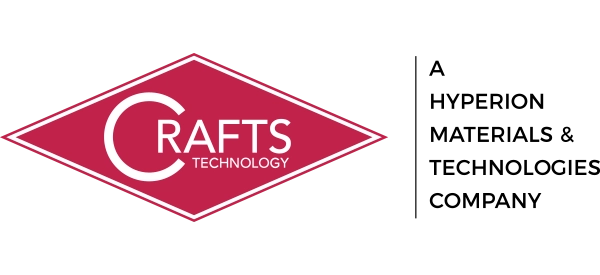Crafts Technology Conflict Materials Policy
Adopted: March 12, 2019
This document contains Crafts Technology’s policy regarding the use of conflict minerals in its products (this “Policy”). This Policy will be reviewed and updated as needed.
Regulatory Overview
On August 22, 2012, the Securities and Exchange Commission (the “SEC”) adopted the conflict minerals
rule (the “Conflict Minerals Rule”) as mandated by the Wall Street Reform and Consumer Protection Act,
also known as the Dodd-Frank Act, which was signed into law in July 2010. The Conflict Minerals Rule
is intended to reduce a significant source of funding for armed groups that are committing human rights
abuses in the Democratic Republic of the Congo (the “DRC”) and its adjoining countries.
To the extent that “conflict minerals” are necessary to the functionality or production of products that
Craft’s Technology manufactures or contracts to manufacture, we are required to conduct supply chain diligence to determine whether the conflict minerals originated in the DRC or one of the other “covered countries.” To the extent that our products contain conflict minerals that are necessary to their functionality or production, we are required to make certain disclosures on Form SD, a new SEC form. Additional disclosure obligations are triggered to the extent that the conflict minerals are from a covered country or we are unable to determine the source of the conflict minerals. Form SD must be filed no later than May 31 of each year pertaining to our use of conflict minerals for the previous calendar year.
“Conflict minerals” are defined in the Conflict Minerals Rule as cassiterite, columbite-tantalite (coltan),
gold, wolframite and three specified derivatives: tin; tantalum; and tungsten. In addition to the DRC, the
“covered countries” are defined in the Conflict Minerals Rule as: (1) Angola; (2) Burundi; (3) Central
African Republic; (4) the Republic of the Congo; (5) Rwanda; (6) South Sudan; (7) Tanzania; (8)
Uganda; and (9) Zambia.
Crafts Technology Policy Statement
Crafts Technology is committed to full compliance with the Conflict Minerals Rule. Crafts Technology further commits to refrain from, directly or indirectly, taking or supporting any action which contributes to the financing of armed groups that are committing human rights abuses in the DRC and other covered countries. Crafts Technology has adopted this Policy as part of our efforts to encourage our suppliers to respect human rights and not contribute to conflict. Additionally, we are aggressively promoting the institution of this Policy to be in the position to provide our customers reasonable assurances that our products are conflict free if such assurances are requested.
Crafts Technology does not typically source conflict minerals directly from mines, smelters or refiners, and, accordingly, in most cases, is several levels removed from these market participants. Therefore, Crafts Technology requires the cooperation of its suppliers in the implementation of this Policy and in enabling Crafts Technology to meet its SEC compliance obligations on a timely basis.
Supplier Requirements
Crafts Technology will not tolerate any direct or indirect support to non-state armed groups through the extraction, transport, trade, handling or export of minerals. Consistent with the foregoing, those of our Suppliers who supply or manufacture components, parts or products containing conflict minerals are expected to source those minerals from socially and environmentally responsible sources that do not directly or indirectly contribute to conflict or human rights abuses. Without limiting the foregoing, Crafts Technology expects its suppliers to meet the expectations set out below.
All suppliers are expected to:
- familiarize themselves with the Conflict Minerals Rule;
- implement and communicate to their personnel and suppliers’ policies that are consistent with this
Policy, and require their direct and indirect suppliers to do the same;
- put in place procedures for the traceability of conflict minerals at least to the smelter or refiner
level, working with their direct and indirect suppliers as applicable;
- where possible, source conflict minerals from smelters and refiners validated as being conflict
free, and require their direct and indirect suppliers to do the same;
- maintain reviewable business records for a period not less than seven (7) years supporting the
source of conflict minerals; and
- from time to time, at Crafts Technology’s request, provide to Crafts written certifications and other
information concerning the origin of conflict minerals included in products and components
supplied to Crafts and the supplier’s compliance with this Policy generally, and require their
direct and indirect suppliers to do the same.
If a supplier is found in violation of this Policy, Crafts will take prompt, remedial measures to address
the violation.
